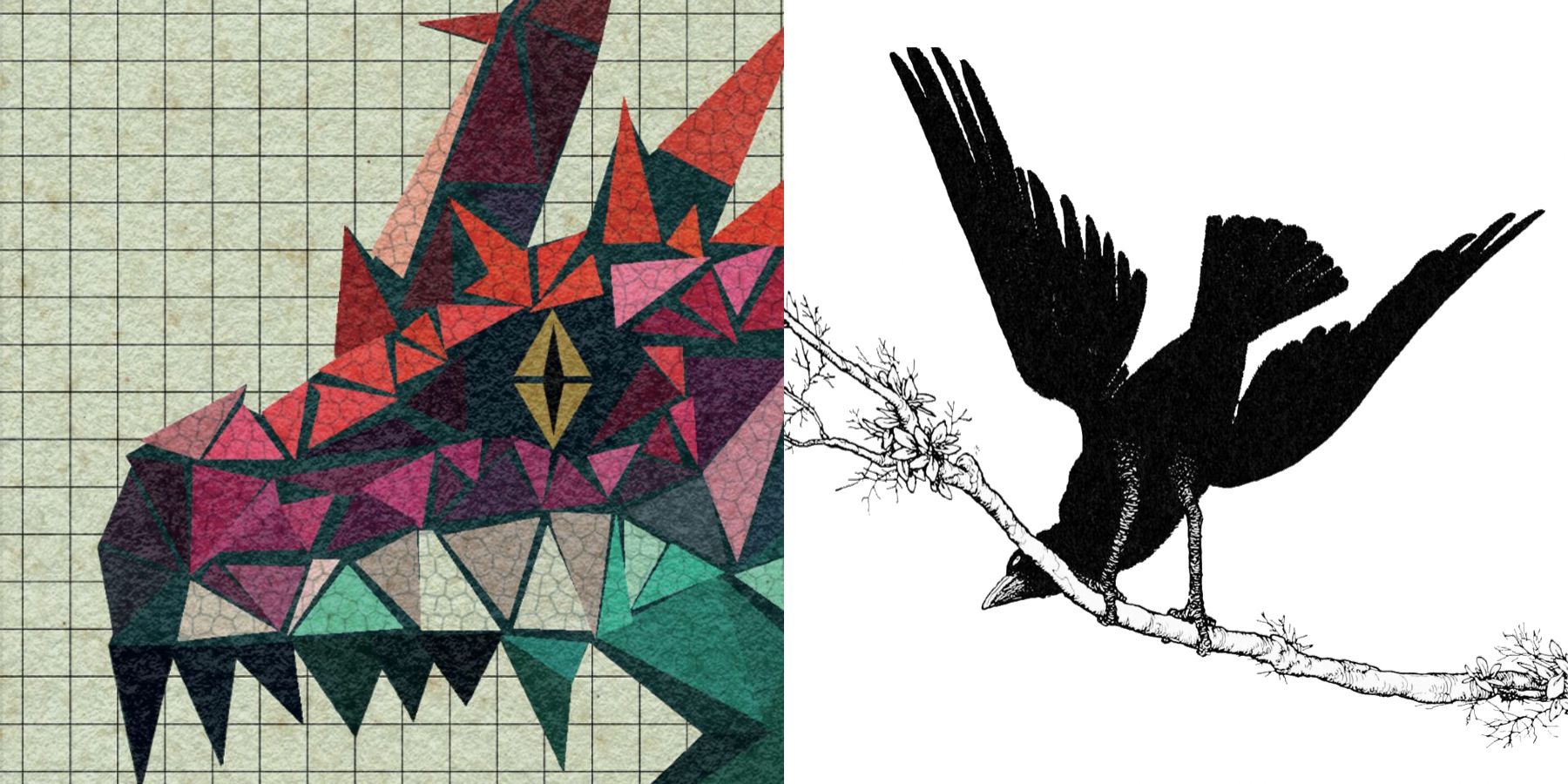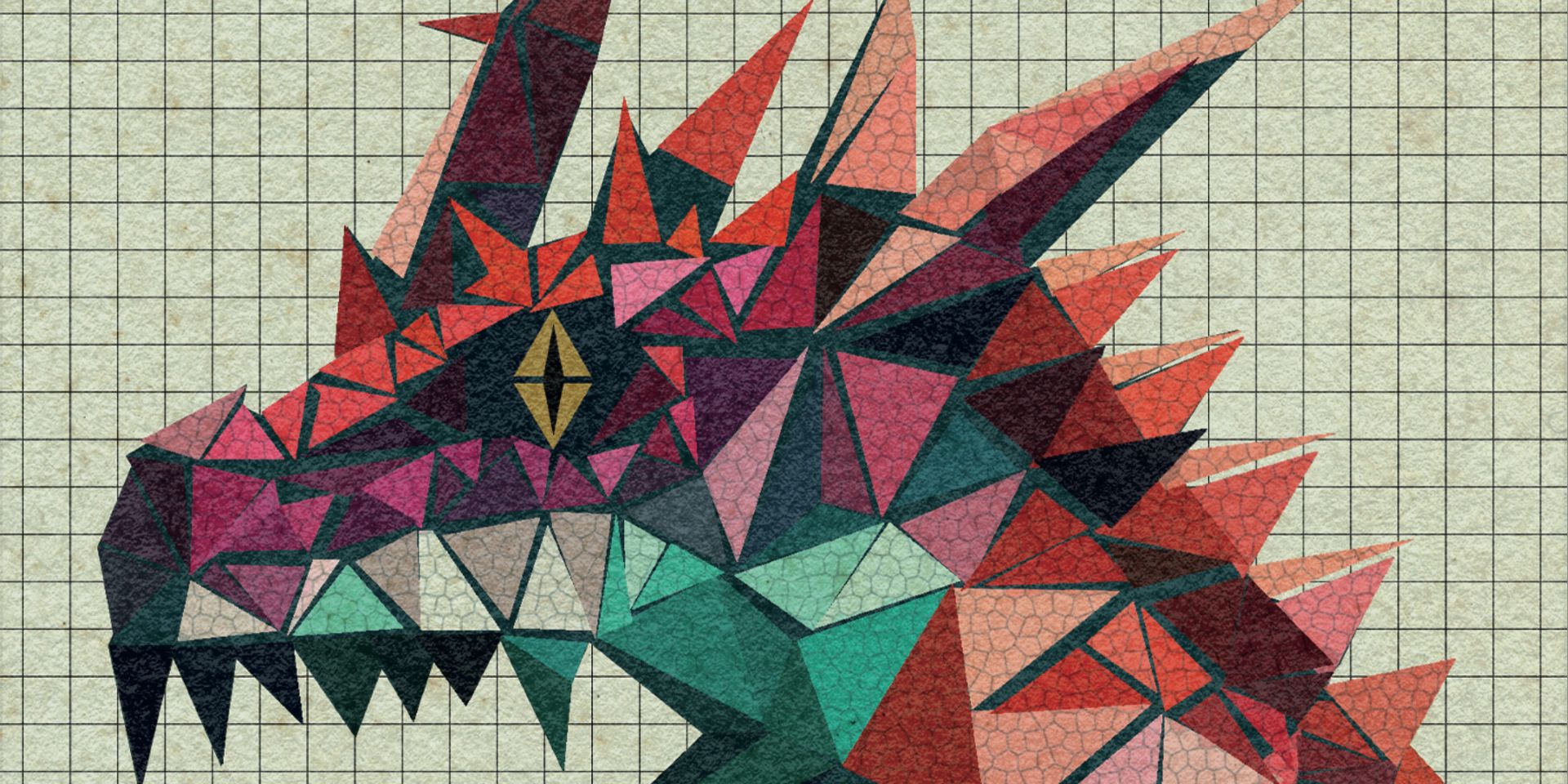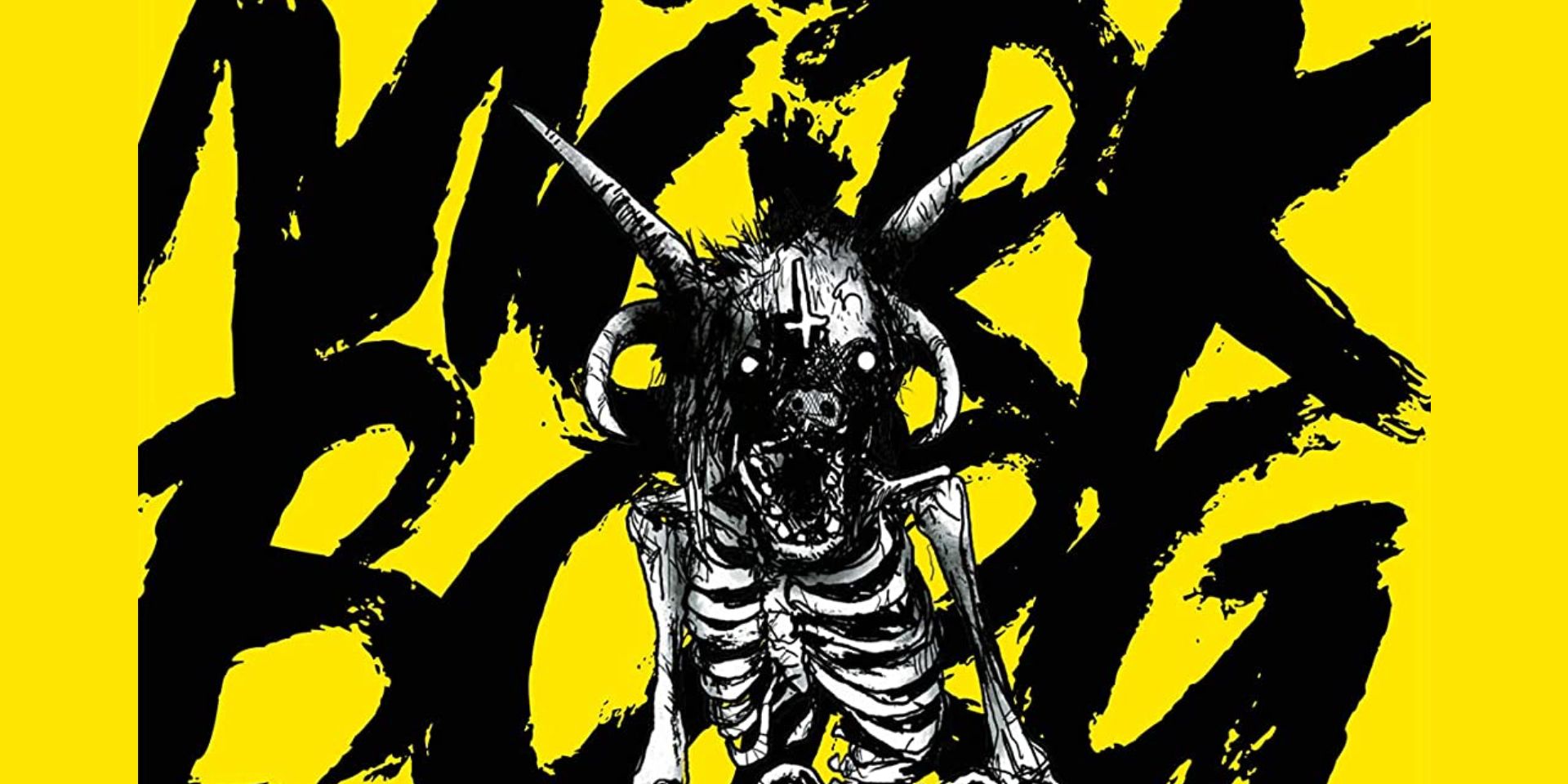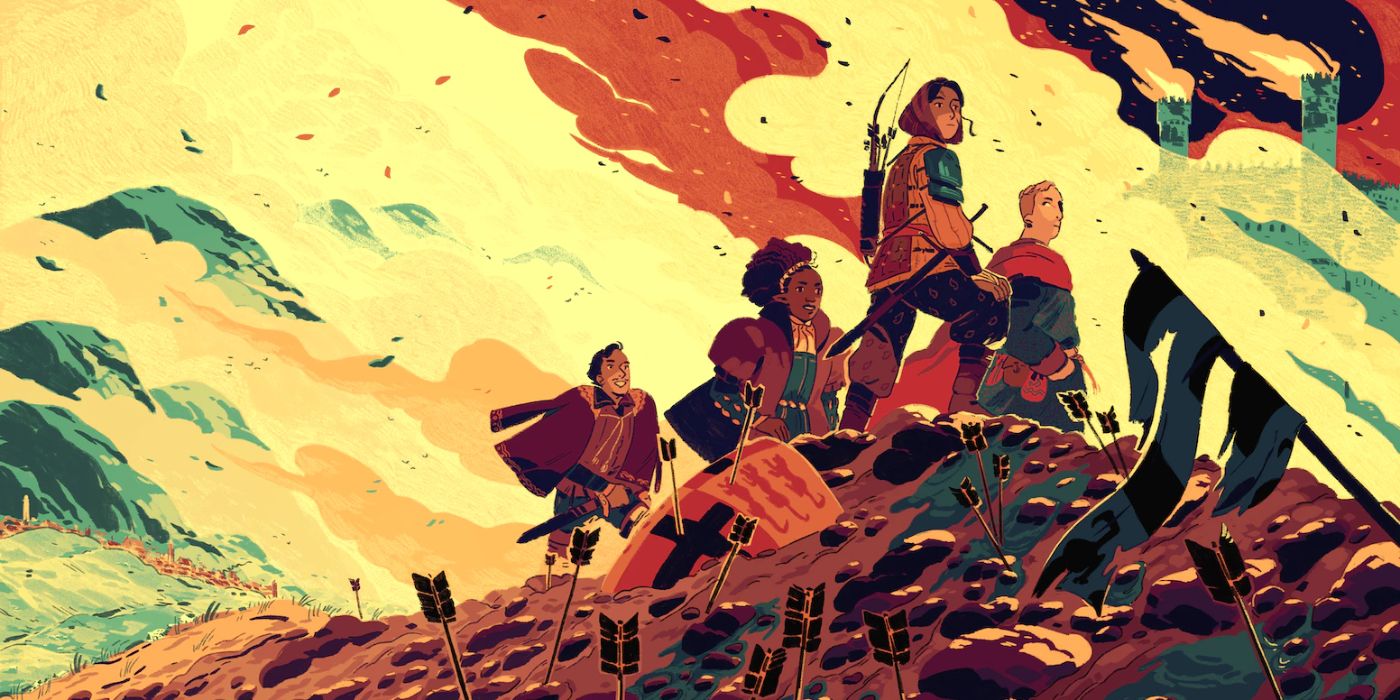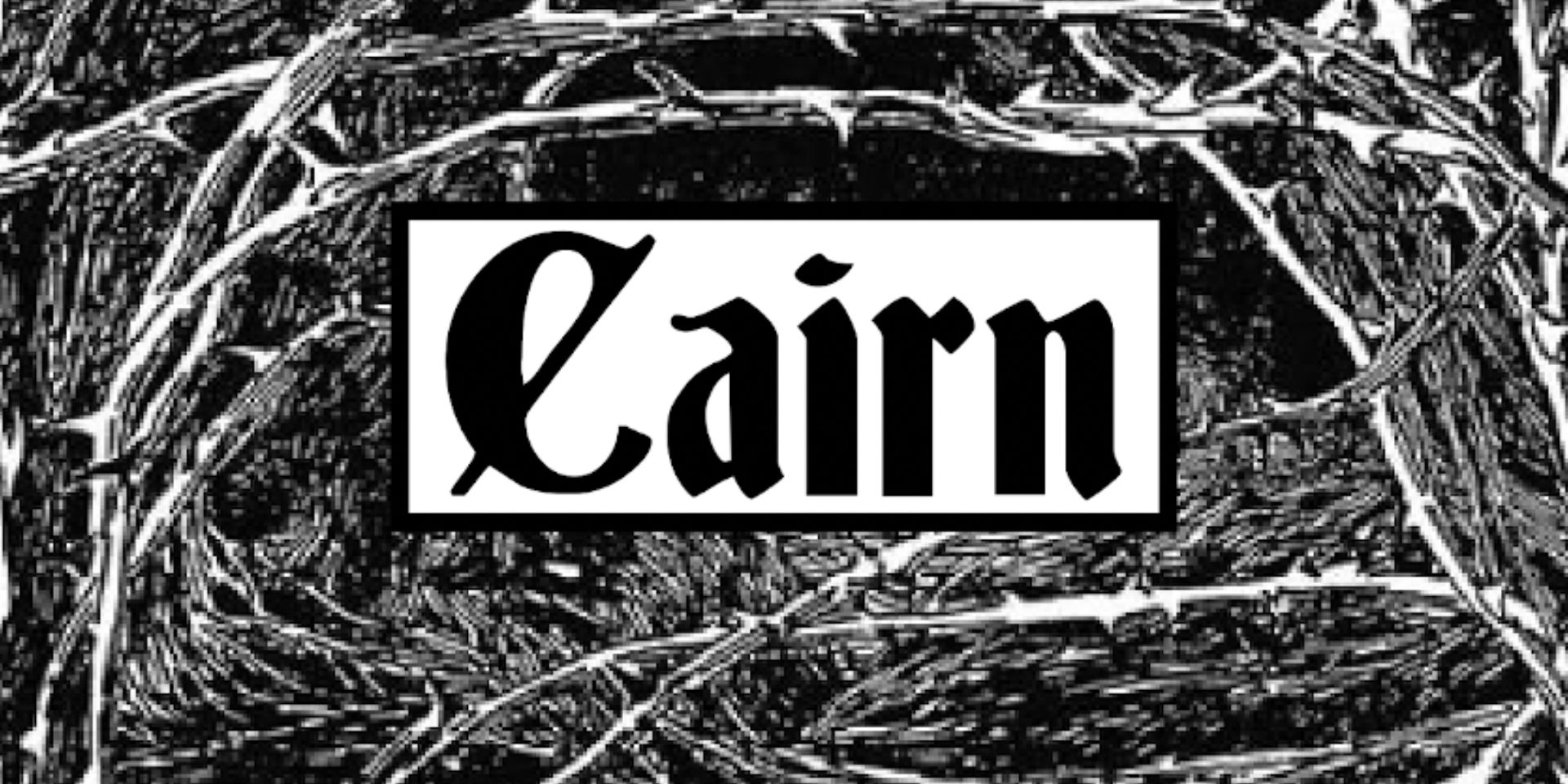Recent announcements from Wizards of the Coast, the current maker of Dungeons & Dragons and subsidiary of Hasbro, have apologized for and walked back on leaked plans to more heavily monetize the DnD brand with a new Open Game License (OGL) that would force third-party DnD developers to pay royalties from their revenue. Even with new promises to return to DnD's previous OGL and release the basic rules under a Creative Commons license, many players have been searching for alternative tabletop roleplaying systems - fantasy adventure games with a similar feel to DnD and accessible basic rules players and other developers are free to hack and adapt.
The original Wizards of the Coast OGL, released for the DnD 3.0 and 3.5 editions, stripped the core game mechanics of Dungeons & Dragons from their medieval fantasy context and turned them into a generic, free-to-use set of tabletop RPG rules. This free d20 system and its successors encouraged third-party developers to create DnD-compatible campaign setting books, dungeon modules, and even d20-centric systems like the superhero RPG Mutants & Masterminds. This and future OGLs greatly increased the popularity and ubiquity of DnD in the tabletop gaming scene, and also encouraged indie developers to create open-license TTRPGs like the ones listed below.
a dungeon game Is Like D&D, But Boiled Down To Its Bare Essentials
Designed and published by indie developer Chris Bissette, a dungeon game essentially takes the dungeon-crawling sword and sorcery gameplay of classic DnD and boils it down to its purest, most intuitive form. Player characters in a dungeon game (available on itch.io) have three basic attributes called Agility, Brawn, and Cunning, and they succeed at d20 ability checks if they roll under their ability rating.
Unlike DnD's potentially absurd class combinations, there are no classes in a dungeon game (beyond an occupation that grants advantage on certain ability checks), so any PC can create and learn new magical Rituals at the cost of reducing their max health or an attribute's strength. Permanent injuries called Scars can boost or penalize a player's rolls depending on the context.
The open license rules for a dungeon game let anyone, be they player or developer, to use and hack the system's rules as long as they abide by these two guidelines:
- Stating that their game is an independent production and not affiliated with the Loot The Room company.
- Not using any of the text in a dungeon game verbatim.
The simple rules and open license of this OSR system make it a solid choice for newcomers to tabletop role playing and content creation, and DnD veterans who are looking for a new system to play that can be swiftly memorized.
MÖRK BORG Is A Humorously Edgy Take On D&D & Old School Revival RPGs
"One day, all will blacken and burn," reads the tagline of MÖRK BORG, a very colorful and grim heavy metal tabletop fantasy RPG about a doomed world. The core book of MÖRK BORG, full of grungy fever-dream heavy metal album artwork, describes a dark, crumbling fantasy world on the brink of apocalypse, with a dice chart/religious prophecy dictated by a two-headed basilisk describing several ways the world will end. Players can adventure through this melodramatically doomed fantasy world with Old School Revival style RPG rules for quickly creating and portraying scoundrels and fools with dodgy magic powers and physical maladies such as rotten teeth.
The OGL for MÖRK BORG is simple and to the point. Players and game developers can't re-use any book artwork, claim their content was made by MÖRK BORG's publishers, or create MÖRK BORG NFTs. Otherwise, they're free to use and re-mix the basic rules of MÖRK BORG (and its cyberpunk RPG spin-off CY_BORG) to create third-party games or dungeon scenarios with an (optional) "Compatible with MÖRK BORG" logo. The core game mechanics of this RPG function particularly well for one-shot or short duration tabletop RPG campaigns, and online generators for character/dungeon/monster creation make it easy to throw dungeon crawls together on the fly.
Quest Is A Beginner Friendly RPG & Kid-Friendly Take On D&D-Style Fantasy
The fantasy tabletop RPG Quest, published by the Adventure Guild, is an accessible roleplaying game in multiple senses of the word. The basic d20 game mechanics are simple, easy to grasp, and don't require any calculations related to attribute scores or dice pool sizes. The layout of the Quest core book is full of colorful illustrations and concise large-font text, making it a beginner-friendly RPG for in-person and online play. The abilities of each character class can be printed out as compact playing cards and let players really customize PCs to their hearts' content (Quest's Fighter class, for example, can be a wrathful berserker, canny tactician, disciplined pugilist, or a blood-stirring warrior poet).
The core rules of Quest are free to download in PDF form. Furthermore, the System Reference Document for Quest is published under the Creative Commons 4.0 license. Anyone can freely share, adapt, or rework the basic rules of Quest as long as the creator credits the original makers of the game and don't try to impersonate them. The Quest roleplaying game SRD website even offers some useful tips for indie game developers trying to hack the Quest rules or create third-party content; for instance, aspiring game hackers shouldn't introduce new rules where players can upgrade PC health, add bonus numbers to dice rolls - like with Dungeons & Dragons' saving throw proficiencies and other rolls - or upgrade a weapon's damage beyond 2.
Cairn Blends Old School D&D With Modern Game Mechanics
Like a dungeon game, the tabletop RPG system Cairn tries to boil the winning formula of Dungeons & Dragons down into a simple, accessible form. Like Quest, Cairn also happens to be published under the Creative Commons 4.0 license. The core game mechanics of Cairn are geared towards telling the story of magical yet vulnerable fantasy adventurers exploring mystic forests and ancient barrows in search of magic, treasure, and glory. The artwork of the Cairn RPG rule book (free on itch.io) is black and white, un-shaded, and reminiscent of the illustrations in vintage first edition DnD campaign books and manuals, while the basic rules include detailed dice charts for creating character names, backgrounds, traits, gear, etc.
Cairn, Quest, MÖRK BORG, and a dungeon game are just a few of the many indie tabletop RPGs on the market designed to emulate the iconic charm of Dungeons & Dragons without being bound by the IP's core rules or fantasy setting conventions. These indie RPGs probably won't surpass the popularity of the DnD OGL, even if relations between DnD players and Wizards of the Coast continue to deteriorate. The bright lining to the ever-changing DnD OGL 1.2 controversy, though, is how veteran RPG players have been inspired to seek out other RPGs besides Dungeons & Dragons, patronize indie game developers who were once overlooked, and expand their perceptions of what tabletop RPG can do or become.
Sources: a dungeon game/itch.io, MÖRK BORG, Quest SRD, Cairn RPG/itch.io, Free League Publishing/Youtube

